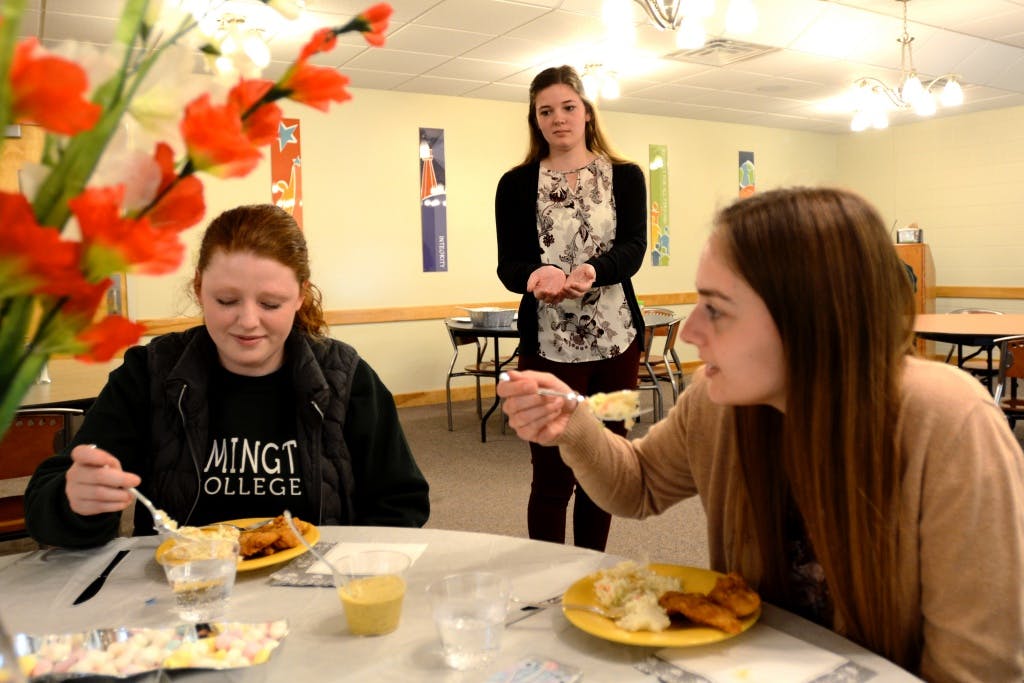Dinner Illustrates Plight of the World's Haves Versus Have-Nots
Each day, 14 percent of the world’s population goes to sleep hungry — that’s 854 million persons. Every day, nearly 16,000 children die from hunger-related causes — that’s a child every five seconds. One billion lack a clean water supply and more than 2 billion people lack adequate sanitation.
PICTURED: Sarah Pope symbolically pleads for food as Jordan Crum (LEFT) and Anna Buck, members of the world's highest income 15 percent, enjoy a basic American meal at the Collegiate Farm Bureau's hunger banquet.
These startling statistics provided by Global Civil Corps represent more than numbers. They are human beings that are undernourished, sick and dying on a “rich and bountiful planet” that has the capacity to support and sustain them.
The world’s food insecurity issue was driven home to Wilmington College students who attended the Hunger Banquet presented as part WC’s Earth Day observance Thursday (April 19) by Collegiate Farm Bureau.
The students and faculty members received colored stickers upon entering the event, which divided them into the three categories that would inform their dining experience.
Fifteen percent received blue stickers and represented those persons in the world with at least a per capita income of $9,076 — those able to afford a nutritious daily diet, health care and education. They dined on a bounty of chicken, potatoes, salad and dessert at a table with linens, a live floral centerpiece and a wait staff at their beckon call.
Those with yellow stickers represented the 25 percent making $912 to $9,075 annually. They dined at bare table featuring a buffet of rice, beans and water, while the remaining 60 percent — those with green stickers — were escorted to sit on the floor and share a pan of rice with three napkins and no eating utensils.
Emily Wesner, a sophomore majoring in agriculture communications and serving as the Collegiate Farm Bureau president, led the group through the meal. She said the Hunger Banquet is a metaphor for how food and other resources are inequitably distributed in the world.
“The roots of hunger lie in inequalities in access to resources and education,” she said from a prepared script, noting the results of this are illiteracy, poverty, war and the inability of families to grow or buy food.
As she addressed the table eating rice and beans, Wesner noted that many of them are one failed crop or serious illness away from descending into the especially vulnerable impoverished group. In fact, she selected a group member and described that person’s dire circumstances — and cast her into the group eating rice on the floor.
“Everyone on earth has the same basic needs,” she said. “It is only our circumstances — where we live and the culture we are born into — that differ. Some are born into relative prosperity and security while millions are born into poverty.”
While the United States is one of the wealthiest countries in earth, almost 35 million Americans live in poverty.
“The fact that you are here today,” Wesner told the participants, shows that you are concerned, that you want to learn more about our world of inequality and that you want to make a difference.”
